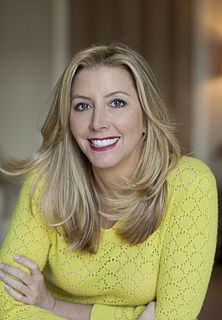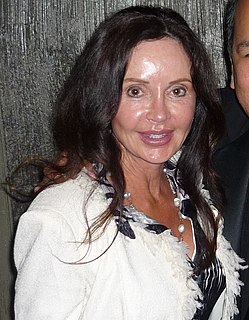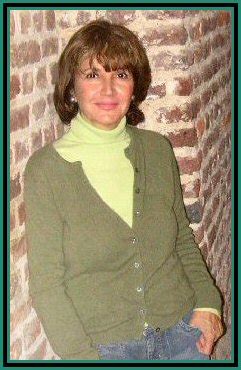A Quote by John Tesh
Oprah was famous for going to a garden party and ad-libbing. She could literally interview people for a half hour about nothing, and it was entertaining. She had her own show before she had her own show.
Related Quotes
From the first time he'd met her, he'd sensed an air of contradiction about her. She was very much a woman, but still retained a waiflike quality. She could be brash, and at times deliberately suggestive, yet she was painfully shy. She was incredibly easy to get along with, yet she had few friends. She was a talented artist in her own right, but so self-conscious about her work that she rarely completed a piece and preferred to work with other people's art and ideas.
In this moment she felt that she had been robbed of an enormous number of valuable things, whether material or intangible: things lost or broken by her own fault, things she had forgotten and left in houses when she moved: books borrowed from her and not returned, journeys she had planned and had not made, words she had waited to hear spoken to her and had not heard, and the words she meant to answer with. . . .
Sarah Brown is a sweetie to work with. She's a good actress. She's gutsy and she comes in and she knows her lines. She's just terrific. Sometimes I forget how young she is, because she truly walked right in and took the territory and was able to hold her own with people who've been here for so many years. To be able to pull that off [for someone who had never been on a show], I really give the woman a lot of credit. She's done great.
You did the best you could, the best you knew how at the time." It was something like that. From Oprah on an Oprah show. Then I believe my quote above was from Maya Angelou on the Oprah show, not Oprah herself. I had heard it before but it was on Oprah's show again 1-7-09 and she said Maya had said it.
From an early age she had developed the art of being alone and generally preferred her own company to anyone else’s. She read books at enormous speed and judged them entirely on her ability to remove her from her material surroundings. In almost all the unhappiest days of her life she had been able to escape from her own inner world by living temporarily in someone else’s, and on the two or three occasions that she had been too upset to concentrate she had been desolate.
She came into a room; she stood, as he had often seen her, in a doorway with lots of people round her. But it was Clarissa one remembered. Not that she was striking; not beautiful at all; there was nothing picturesque about her; she never said anything specially clever; there she was however; there she was.
My mother didn't feel sorry for herself, she was left with no child support, no alimony at a very young age, with a child to raise, a high school education and she just figured it out. She didn't complain, she didn't rely upon government, she relied upon her own skill set, her own self confidence, her own drive in moxie and her own duty to me and her and she relied upon her family and her faith.
She'd assumed she'd be married and have kids by this age, that she would be grooming her own daughter for this, as her friends were doing. She wanted it so much she would dream about it sometimes, and then she would wake up with the skin at her wrists and neck red from the scratchy lace of the wedding gown she'd dreamed of wearing. But she'd never felt anything for the men she'd dated, nothing beyond her own desperation. And her desire to marry wasn't strong enough, would never be strong enough, to allow her to marry a man she didn't love.
In a way, her strangeness, her naiveté, her craving for the other half of her equation was the consequence of an idle imagination. Had she paints, or clay, or knew the discipline of the dance, or strings, had she anything to engage her tremendous curiosity and her gift for metaphor, she might have exchanged the restlessness and preoccupation with whim for an activity that provided her with all she yearned for. And like an artist with no art form, she became dangerous.
Yet there were times when he did love her with all the kindness she demanded, and how was she to know what were those times? Alone she raged against his cheerfulness and put herself at the mercy of her own love and longed to be free of it because it made her less than he and dependent on him. But how could she be free of chains she had put upon herself? Her soul was all tempest. The dreams she had once had of her life were dead. She was in prison in the house. And yet who was her jailer except herself?




































